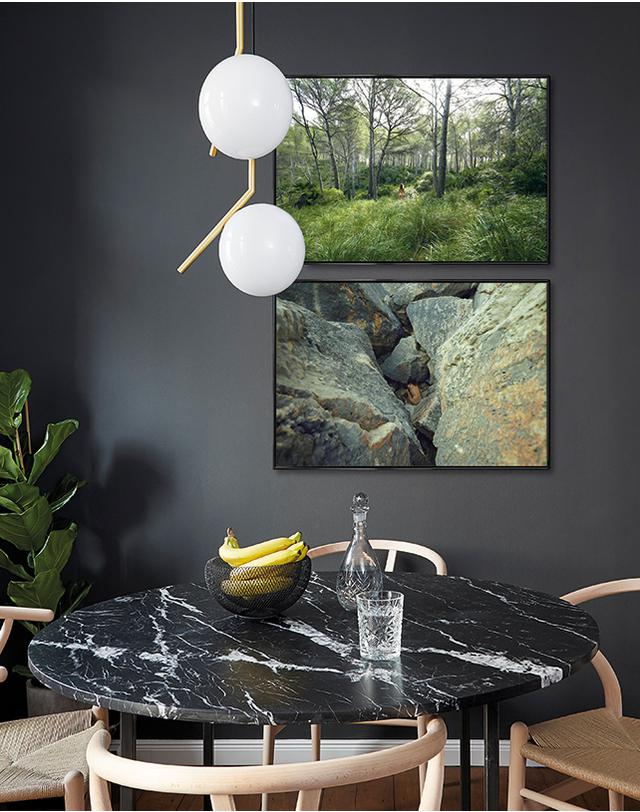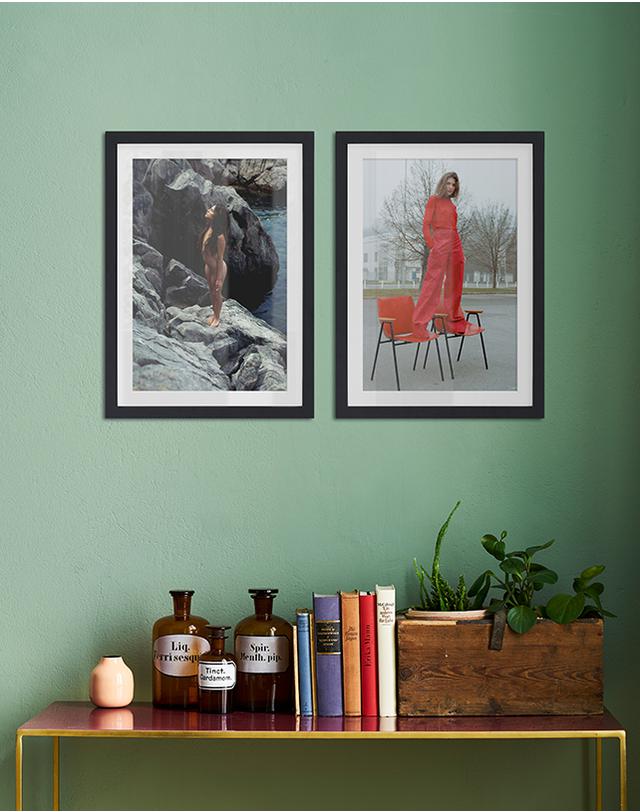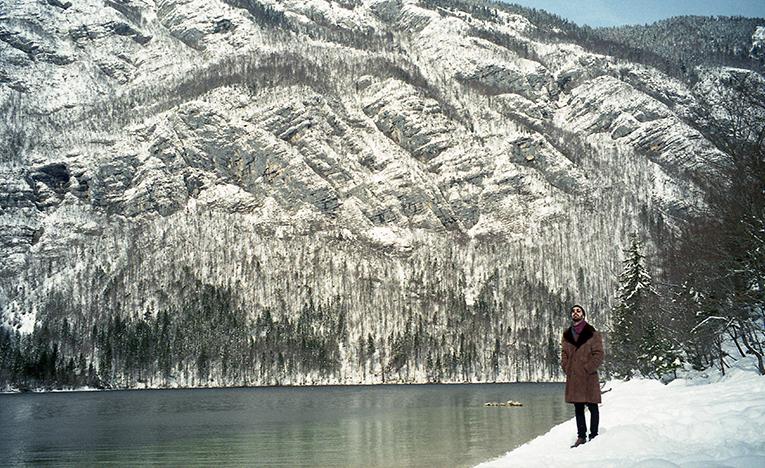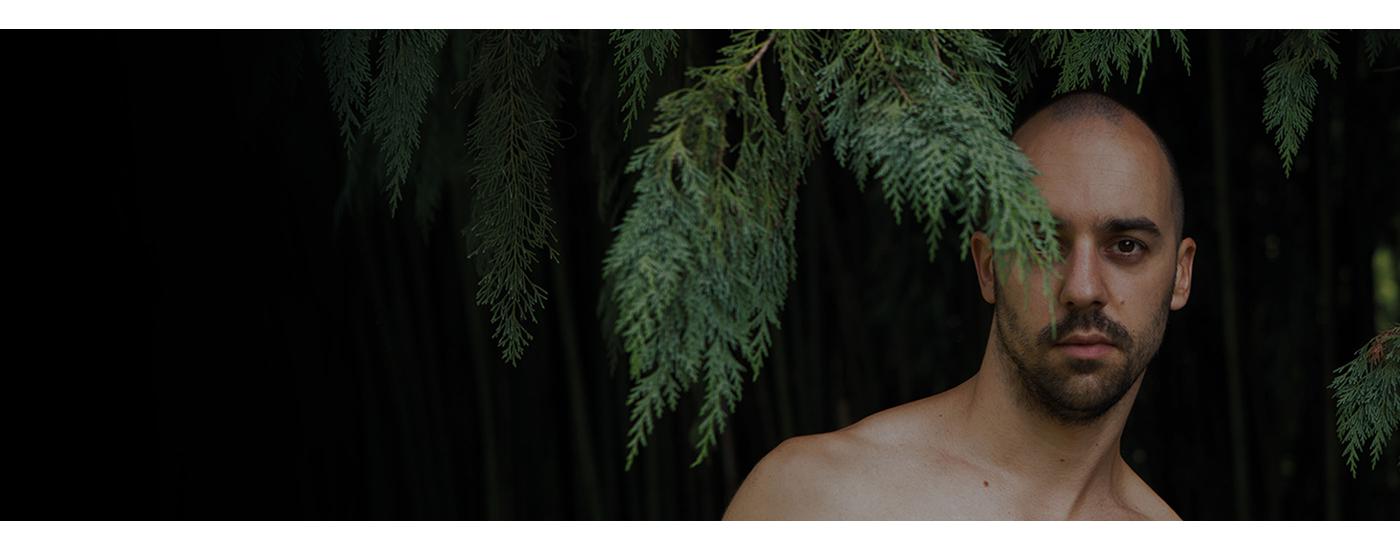Returning to his roots has had a profound impact on the life and work of Slovenian photographer Matevž Kosterov. After having long experimented with avant-garde fashion photography and dystopian urban landscapes, he has now shifted his artistic attention back to nature and what makes us human beings. Back in his native country, Matevž traverses mountains and forests in search of the ideal shooting location for his models. We spoke with him about his passion for photography, his fascination with the human form and his love of the environment.

After living in Berlin, you've now returned to your native Slovenia. What motivated this decision?
I started to miss the nature there so much. The thing about Slovenia is that you have plenty of different natural landscapes in such a small space. So if you decide to shoot a beach scene, for instance, you can reach the seaside within two hours. Or an ancient forest or some magical mountains—Slovenia is a country with lots of corners to explore.
How would you describe your path to becoming an artist?
The first time I really thought of becoming an artist was when I wrote a school essay about fear. It ended up being a Sci-Fi novel that got published in a local newspaper.
Why did you choose photography as your main medium?
I remember when I got my first camera (a point-and-shoot Yashica) and used to play with it a lot. The first head-over-heels moment, though, was when my father bought his first DSLR camera. I watched him closely while he took all sorts of pictures. I can clearly remember one photo of tulips on a warm spring day. He really took his time to get the shot just right. After he developed it, I just fell in love with all those vibrant colours and the smooth bokeh surrounding them.
How do you select the models and scout the locations for your pictures?
I never really liked how the selection of models works in fashion. It feels like they’re just some object you can pick up from an agency and do whatever you want with. That’s why I entirely abandoned this approach to photography and opted for a different process. For the past year, I’ve started working on two aspects that I really enjoy: nudity and nature. And since being naked is so personal and intimate, I let the models pick me to photograph them.

As for the locations, sometimes I stumble upon them when I travel around with my girlfriend, sometimes the models pick their own. There was this model who picked a location known for wild wolves. Taking pictures there felt extraordinary. As soon as we started, her true nature came out with such ease. She moved around as if she were a wolf herself. But I think the most important aspect of these selections is to put as little effort into them as possible. It’s just got to feel right.
What draws you to the human body and natural landscapes?
Every human body is a work of art in itself. There are so many unique details in every part of us. Just thinking about how these biological machines of ours work thrills me. And it’s so interesting how our behaviour changes when we’re not surrounded by anything that defines us, in an environment that is not human-made. My hometown is next to a large forested area with so many different landscapes that I loved to explore as a kid. I watched them grow and change in time, just like my body did. It’s the only place, after my imagination, where I can forget all the hard things that happen in life and just be myself.
Imagine you could photograph one famous woman anywhere in the world. Who and where would it be?
I’d have to go with Grace Jones in Madagascar because I just love her strong personality and relentless nature. She would surely teach me a thing or two about being yourself in these weird, egocentric times. And Madagascar, because its nature is so diverse—I’d finally see lemurs in the wild.
If you had three wishes, what would they be?
My first wish would be that we coexist with nature as one, as our forefathers and mothers used to, and some distant tribes still do to this day. Just observing how Amazonian tribes live made me wish that us Westerners were not so greedy and destructive with our habitat. The second would be to get rid of all the trash in the oceans, including microplastic. The third wish is a little more selfish. I’d wish to become filthy rich and invest all that money into changing the world for a better future…well almost all of it.
Thanks Matevž!

Text: Diane Mironesco
Translation: Nicholas Potter
